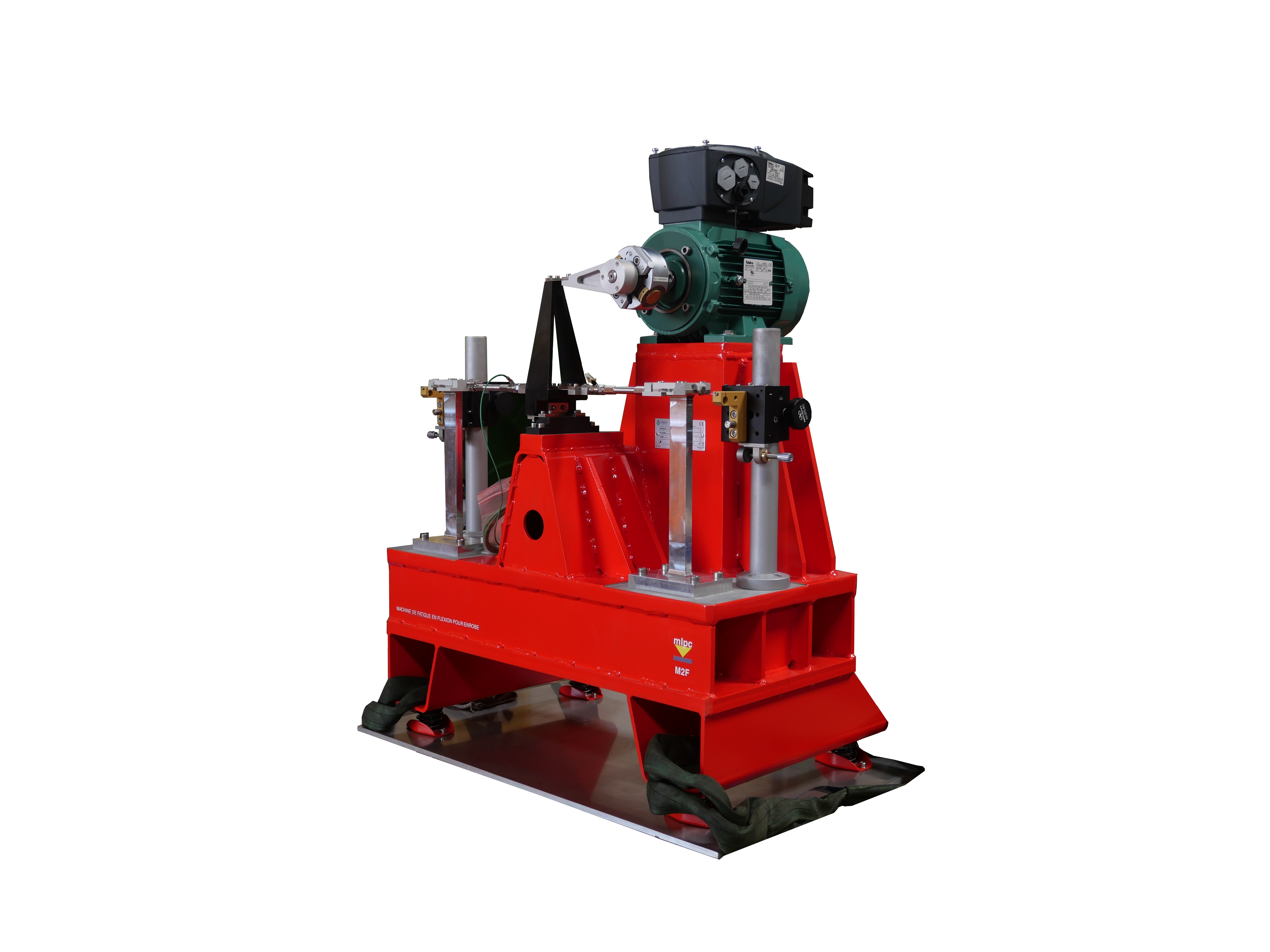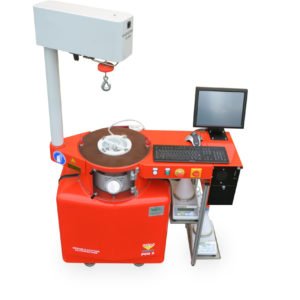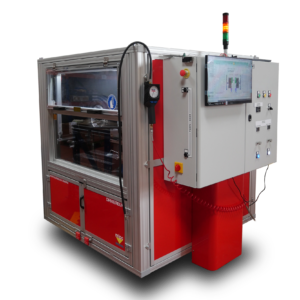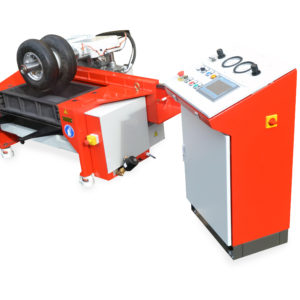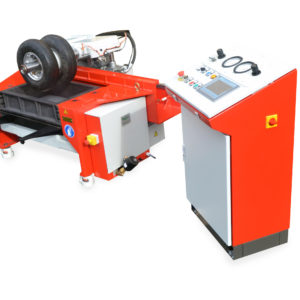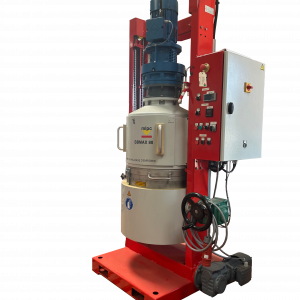Description
Fatigue resistance test:
Bracketed specimens embedded at their bases are subjected to a sinusoidal displacement of constant amplitude in a temperature controlled environment. The reaction force decreases during the test and the arbitrary criteria for specimen failure is half the initial force. This test is repeated for three levels of displacement. Thus, by performing a linear regression on the individual results, the equation for the fatigue line is obtained, which allows the calculation of the deformation to be applied to the materials to achieve a life of 106 cycles (ε6). The temperature remains constant for the duration of the test.
Complex modulus test:
The exciter imposes a sinusoidal force on the head of the test piece causing a displacement. The displacement as well as the force at the head of the specimen are measured, thus making it possible to calculate from the characteristics of the specimens, the maximum stress and deformation values necessary for the determination of the complex modulus. These measures are made in the “Linear” domain of the materials, so that the modulus is independent of the applied deformation. The temperature remains constant for the duration of the test.


